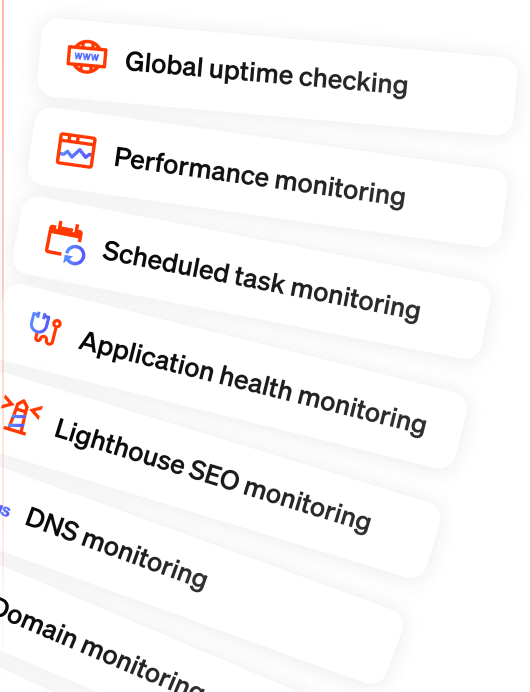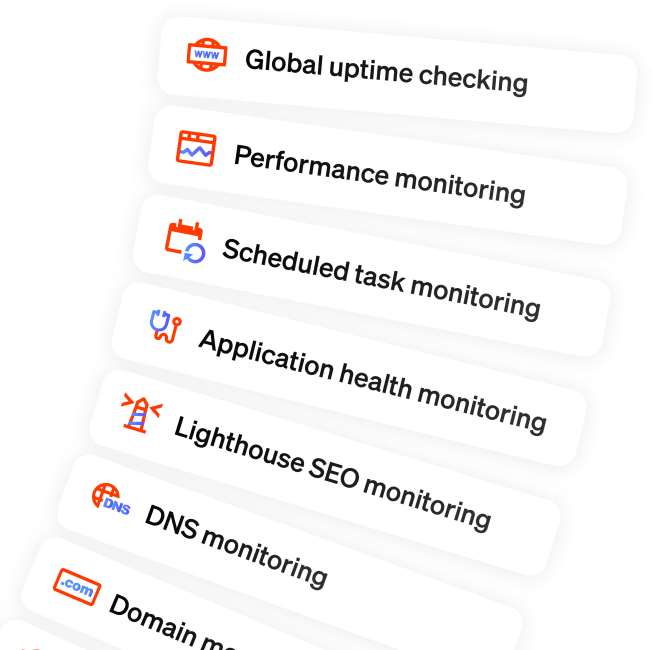Introducing private status pages
Published on March 31, 2021 by Mattias Geniar
You can now mark status pages as private, guarding them from the outside world unless you have the secret passphrase.
Public status pages #
We've had public status pages for quite a while. Many big brand names are also using them, like Laravel, VuetifyJS, Sex.com, ... and so many others.
They're a convenient way of communicating to your clients in times of crisis.
And, as you can tell from the examples, they're suitable for - well, every industry. 😉
But sometimes, you want things a little more private.
Private status pages #
You can now, optionally, add a secret to each status page. If you know the secret, you can see the status page - if you don't, you're blocked from viewing.
It's similar to a password or HTTP Basic Authentication, but a bit more easy to use: configure a secret, of your choice, in the settings page and add ?secret=$YOUR-SECRET to the URL of your status page to view it.
Wrong secret? No access. Correct secret? Bingo, you're in!
This works on status pages on custom domains or hosted on Oh Dear's own domain.
This'll make it easier to share status pages for internal sites, dev-specific environments and clients that want a dashboard in their office, but don't necessarily want it all public.



